Africa Fintech Rising is a podcast that features interviews with the innovators and disruptors who are revolutionizing money in Africa. Our own Paula Hunter, executive director of the Mojaloop Foundation, was a guest on episode #4 of 2023.
Her conversation with host Andrew Barden touched on:
- Unlocking the potential of open-source software.
- Empowering nations with digital and data sovereignty.
- Discovering the simplicity and accessibility of Mojaloop, making financial inclusion a reality.
- Prioritizing transparency and security to build trust within the ecosystem.
- Harnessing the strength of the community, driving collaboration and collective progress.
- Understanding how the latest Mojaloop projects are driving innovation.
- Envisioning a future of seamless cross-border payments.
You can listen on Google Podcasts, Apple Podcasts, Soundcloud, or search for it on your favorite podcast app.
Insights and Takeaways
On the advantages of open-source software for financial organizations, institutions, and central banks.
Open source has definitely evolved over the last two decades, and there are many solutions in use around the globe. They take advantage of several things:
- Free licensing, which makes the code available to all and allows faster development for a lower cost.
- A community development model that ensures a large team of experts is constantly providing oversight and improving the product.
- The flexibility to work with anyone to optimize the implementation for their needs — no vendor lock-in.
How does Mojaloop ensure security?
We have a very transparent process by which code is reviewed, evaluated, and accepted into the code base. It goes through rigorous security and testing review before it’s approved. We also welcome independent audits and assessments of the security of the software.
If we believe that there’s an issue that needs to be addressed, we can have a very rapid response to any security threats because we have hundreds of developers in our community who can jump on it and knock it back very quickly.
Most importantly, our community approach allows us to avoid issues in the first place because we have the expertise of so many different skilled developers. Many eyes from all around the world provide a collective awareness and knowledge of best practices to mitigate security concerns.
Could you give us an overview of digital sovereignty and data sovereignty?
Sovereignty for the digital environment is really about being able to control what you operate and deploy to your citizens, while tapping into the international community that is evolving the product and creating more features and capabilities for you.
We’ve heard consistently across the continent that data sovereignty is so important that in many cases, an organization will not deploy in the Cloud. We use the Cloud for development, proof of concepts, and pilot projects. But when entities want to deploy full-scale production-level implementations, they opt for in-house because they want that control over their data.
With sovereignty, banks still maintain their environment, they still maintain their Mojaloop implementation. They’re just not writing a check to a proprietary vendor to do a custom build or feature for them. If they want new features or maintenance to the code base, they can go out to our robust community and collaboratively see it adopted by a relevant workstream.
Explore the Opportunities of Mojaloop
Mojaloop is an open-source payment solution: a software that connects different types of digital payment methods and financial institutions.
The Mojaloop Foundation is a non-profit that offers this software free of charge to help hub operators provide low- or no-cost payment processing for everyone — even the unbanked. For low-GDP countries, this can mean bringing more people into the digital economy, a concept called financial inclusion.
Connect with us to join the Mojaloop community and learn more about how you can make an impact. Be sure to follow the Mojaloop Foundation on YouTube, Twitter, LinkedIn, and Facebook for all the latest.

